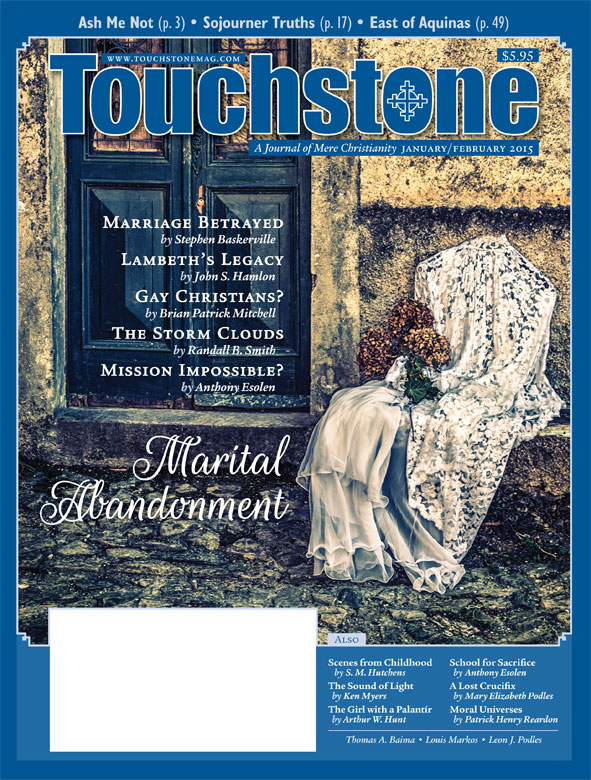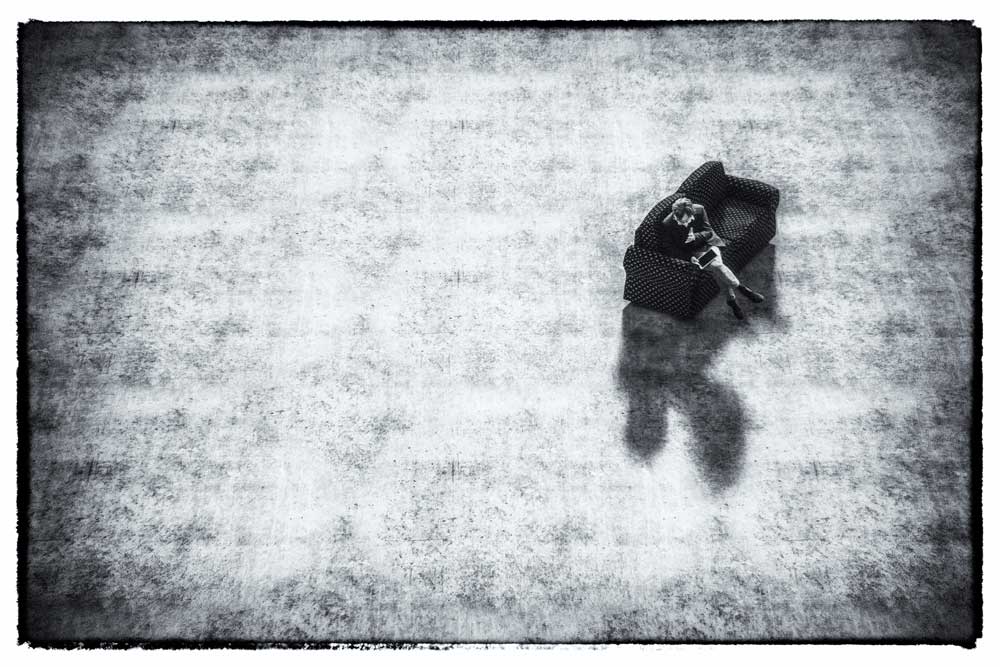Editorial
Resurrection, Dust & Ashes
Cremation Is a Counter-Christian Witness
In a recent First Things article (firstthings.com/web-exclusives/2014/09/resurrecting-the-dead-in-america), sociologist Mark Regnerus reports on a poll he helped formulate for the Relationships in America project, the results of which are based on a sample of more than 15,000. Concerning belief in the resurrection of the dead, Regnerus writes,
A general resurrection of the dead is something orthodox Christians across the centuries have long anticipated. And it's one of those chunks of Christian dogma that must seem unbelievable to a genuine outsider (think second-generation secularist). Our dead bodies will return to dirt, or become fish food, or burnt up, and yet from such dust we will be reconstituted in the flesh—just as Job (19:26) claimed—by our Maker at some appointed future day and hour. Right?
Many of the faithful aren't so sure. Since pastors and priests are quick to remind me that Christians who aren't active in their congregations may think all manner of things, I distinguish between "everyone" and active parishioners, defined here as people who attend services at least three times a month. Overall, 37 percent of Americans believe there will be a bodily resurrection of the dead, compared to 72 percent who express a positive belief that there is life after death.
While most Americans reject a bodily resurrection, solid majorities of many major religious groups affirm it. Belief in the resurrection is highest among the Latter Day Saints, self-identified fundamentalist Protestants, evangelical Protestants, and Pentecostals. Among their churchgoing populations, support for it runs at 94, 86, 75, and 74 percent, respectively. But active attendance doesn't seem to matter a great deal here—a few percentage points. . . . [Nota bene: according to this survey, a quarter of practicing Evangelicals reject the resurrection.]
It's worse, however, among Roman Catholics, who are notably less apt to believe in the resurrection
of the dead. Self-identified "traditional" Catholics are predictably the most supportive, at 58 percent among regular Mass attenders. Moderates are more skeptical (at 41 percent overall), and self-identified "liberal" Catholics are largely pessimistic. Even among those who attend Mass regularly, only 30 percent affirmed a future resurrection.
As I rose from the dust upon hearing these results, I wondered why increasing disbelief in the resurrection of the body among ignorant people who profess to be Christians, most of whom probably believe in "life after death," wouldn't support increasing willingness to cremate the bodies of their dead. There is at least a logical connection here.
The problem is that the importance of the body in the Christian faith is such that, despite many perfectly reasonable arguments in favor of cremation, deliberately destroying it by fire has the historical pedigree of paganism, Christian resistance to the practice, and symbolic overtones of denial, or at least minimizing the importance of the body and its resurrection, not to mention the unavoidable symbolism of a judgment that delivers the dead to the fires of hell. No doubt most of these doctrinally challenged churchgoers believe in the immortality of the soul, which even the pagans did (one finds it in Homer, for example, when Odysseus visits Hades). But the Christian doctrine, inherited from the Jews and fulfilled in the rising of Christ, is the resurrection of the body.
Infected with Pagan Thinking
Typically, paganism of the more pious sort regarded the material body as an inferior element of which the ascending soul desires to rid itself—and what could be more purifying than fire? Rejection of this, and teaching about the positive goodness of the material world, including human flesh, created immediately by God and not confected by mere nature or some demiurgic power, made the faith of Jews and -Christians distasteful to higher-minded pagans. Christianity has often become infected with this kind of thinking, perhaps through the easy failure to distinguish fallen creation from creation as created and redeemed, and has never completely shaken loose from it.
S. M. Hutchens is a senior editor and longtime writer for Touchstone.
subscription options
Order
Print/Online Subscription

Get six issues (one year) of Touchstone PLUS full online access including pdf downloads for only $39.95. That's only $3.34 per month!
Order
Online Only
Subscription

Get a one-year full-access subscription to the Touchstone online archives for only $19.95. That's only $1.66 per month!
bulk subscriptions
Order Touchstone subscriptions in bulk and save $10 per sub! Each subscription includes 6 issues of Touchstone plus full online access to touchstonemag.com—including archives, videos, and pdf downloads of recent issues for only $29.95 each! Great for churches or study groups.
Transactions will be processed on a secure server.
more from the online archives

33.1—January/February 2020
Do You Know Your Child’s Doctor?
The Politicization of Pediatrics in America by Alexander F. C. Webster
calling all readers
Please Donate
"There are magazines worth reading but few worth saving . . . Touchstone is just such a magazine."
—Alice von Hildebrand
"Here we do not concede one square millimeter of territory to falsehood, folly, contemporary sentimentality, or fashion. We speak the truth, and let God be our judge. . . . Touchstone is the one committedly Christian conservative journal."
—Anthony Esolen, Touchstone senior editor









